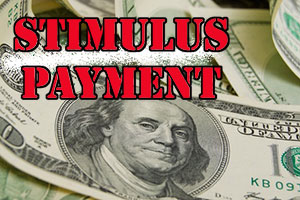As many of you are aware, the federal government has issued stimulus payments to people who qualify based upon their income. Unfortunately, this is resulting in the government auto depositing payments to the accounts of people who have passed away. Accordingly, this post will help you understand what to do if a stimulus payment made to a deceased person.
After weeks of online discussion and public conjecture, the IRS formally commented on its Frequently Asked Questions Page (Economic Impact Payment Information Center Page) on the issue of decedent ineligibility for coronavirus stimulus payments and also posted very specific instructions of how to return the check or funds.
The most helpful IRS responses regarding what to do if a stimulus payment is made to a deceased person are as follows:
Q10. Does someone who has died qualify for the Payment? (added May 6, 2020)
A10. No. A Payment made to someone who died before receipt of the Payment should be returned to the IRS by following the instructions in the Q&A about repayments. Return the entire Payment unless the Payment was made to joint filers and one spouse had not died before receipt of the Payment, in which case, you only need to return the portion of the Payment made on account of the decedent. This amount will be $1,200 unless adjusted gross income exceeded $150,000.
Q48. What should I do to return an Economic Impact Payment (EIP)? (updated May 11, 2020)
A48. You should return the payment as described below.
If the payment was a paper check:
- Write “Void” in the endorsement section on the back of the check.
- Mail the voided Treasury check immediately to the appropriate IRS location listed below.
- Don’t staple, bend, or paper clip the check.
- Include a note stating the reason for returning the check.
If the payment was a paper check and you have cashed it, or if the payment was a direct deposit:
- Submit a personal check, money order, etc., immediately to the appropriate IRS location listed below.
- Write on the check/money order made payable to “U.S. Treasury” and write 2020EIP, and the taxpayer identification number (social security number, or individual taxpayer identification number) of the recipient of the check.
- Include a brief explanation of the reason for returning the EIP.
For your paper check, here are the IRS mailing addresses to use based on the state:
| If you live in… | then mail to this address |
|---|---|
| Maine, Maryland, Massachusetts, New Hampshire, Vermont | Andover Internal Revenue Service 310 Lowell St. Andover, MA 01810 |
| Georgia, Iowa, Kansas, Kentucky, Virginia | Atlanta Internal Revenue Service 4800 Buford Hwy Chamblee, GA 30341 |
| Florida, Louisiana, Mississippi, Oklahoma, Texas | Austin Internal Revenue Service 3651 S Interregional Hwy 35 Austin, TX 78741 |
| New York | Brookhaven Internal Revenue Service 5000 Corporate Ct. Holtsville, NY 11742 |
| Alaska, Arizona, California, Colorado, Hawaii, Nevada, New Mexico, Oregon, Utah, Washington, Wisconsin, Wyoming | Fresno Internal Revenue Service 5045 E Butler Avenue Fresno, CA 93888 |
| Arkansas, Connecticut, Delaware, Indiana, Michigan, Minnesota, Missouri, Montana, Nebraska, New Jersey, Ohio, West Virginia | Kansas City Internal Revenue Service 333 W Pershing Rd. Kansas City, MO 64108 |
| Alabama, North Carolina, North Dakota, South Carolina, South Dakota, Tennessee | Memphis Internal Revenue Service 5333 Getwell Rd. Memphis, TN 38118 |
| District of Columbia, Idaho, Illinois, Pennsylvania, Rhode Island | Philadelphia Internal Revenue Service 2970 Market St. Philadelphia, PA 19104 |
| A foreign country, U.S. possession or territory*, or use an APO or FPO address, or file Form 2555 or 4563, or are a dual-status alien. | Austin Internal Revenue Service 3651 S Interregional Hwy 35 Austin, TX 78741 |
COVID-19 has caused an unprecedented number of deaths and complicated many of the traditional processes for burial, funerals, grieving and support. Estate administrations have surged, with families and loved ones searching for assets and answers. While the recent rounds of economic impact payments have caused the biggest question posed to our office, we are available to answer any questions you may have regarding estate administration or the probate process during these difficult times.
Written by Elizabeth Ketterson, Esq. and Kevin A. Pollock, Esq.




